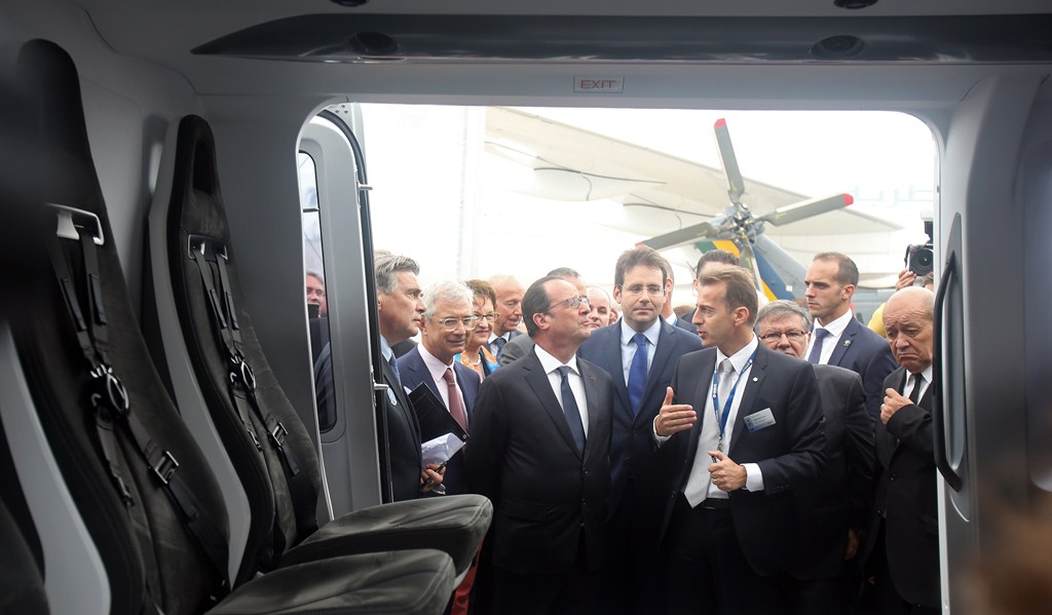Too little too late, mes amis.
With the one-year anniversary of Russia’s Special Military War Crime Operation against Ukraine fast approaching, French aerospace giant Airbus has finally caved to months of international pressure to fall in line with Western sanctions and will stop propping up the Putin regime by doing big business with it “within months.” While I would prefer “within hours,” it is nice that they seem to have seen some semblance of light, though, as they say in Paris, trop peu, trop tard—too little, too late.
As one of the last Western corporate holdouts dealing with the Russian regime (it is worth noting that their main competitor was outta there within a month), Airbus should be held accountable for brazenly displaying (again, by the way) what amounts to anti-Western sentiments, and the U.S. government should lead the way. As a keen observer wrote months ago in The Economic Standard, “Sanctions only work when nations and multinational corporations work together to impose them. A company ignoring sanctions should be treated as an outcast, not be rewarded for bad behavior.”
OK, that was me. I have been beating this drum like many others over the past year because the behavior is disgusting, the blowback generally weak, and Airbus needed to understand that at least some were calling it what it was. Ukraine’s survival depends heavily upon rock-solid Western unity on sanctions, and that is that.
Airbus chose a side early on in this nightmare, and it was not ours.
Some will say it is never too late to get on board with sanctions against Russia. That Airbus deserves our gratitude for stepping up. I agree with the former, yet vehemently disagree with the latter. Airbus must pay a price for its avidité.
The U.S. government should absolutely take a hard look at whether significant sums of U.S. taxpayer cash should continue to go to such a problematic and unreliable company.
Reuters reported days ago that, “according to a senior executive,” Airbus was “in the process of decoupling from Russia when it comes to the titanium they’ve been buying for them cheap. It will be a matter of months not years.” A welcome change, of course, from the statement of the gentle Airbus CEO Guillaume Faury from April when he said, “we don’t think sanctions on imports will be appropriate,” because the sanctions “will be a small impact on Russia and would have large consequences on the rest of the countries and the industry.” Again, in April, when the sanctions were, in fact, beginning to have a very large impact on Russia with few consequences for the industry (as evidenced by my earlier reference to others having quickly done the right thing).
Related: The EU Just Carved Up New Russia Sanctions so Airbus Can Continue to Skirt Them
The company still should be disqualified from contracting with the Pentagon because there are better American alternatives and Airbus has a checkered past in general. Sanctions-busting. Corruption. Sketchy coziness with China. And so forth. Airbus belongs on the list of foreign entities prevented from contracting with any arm of the U.S. government, especially the Pentagon.
Assuming that will not happen, there are some things currently underway between our government and Airbus that perhaps could use some fresh scrutiny, considering their most recent bad behavior. As recently as May of this year, the U.S. Army awarded a contract to Airbus for “follow-on Contractor Logistics Support (CLS)” that might add up to about $1.5 billion in outlays. According to Airbus, this contract with the U.S. Army is the largest helicopter performance-based support contract managed by them worldwide. Defense One reported in January that Airbus has been seeking a contract to build military refueling tankers, which is still under consideration. Who knows what other projects funded by our tax dollars Airbus might have their eyes on?
Again, I’m glad they finally came around but that’s just not enough. Airbus must pay a price and we should exact it, because it’s not looking like anyone else plans to. Awarding or renewing U.S. government business to Airbus anytime soon, in this case, would send a terrible message about our tolerance for unreliability or outright disloyalty in international crisis situations.










Join the conversation as a VIP Member